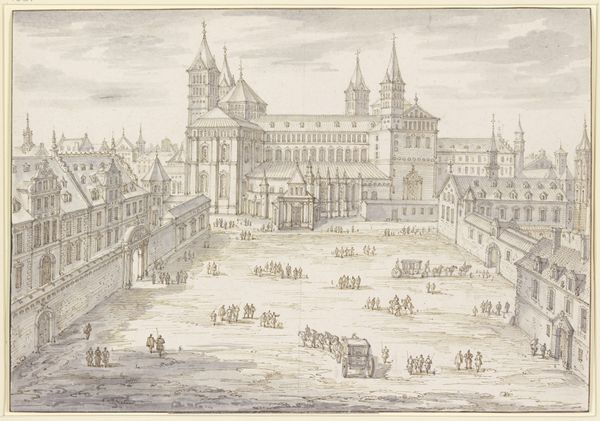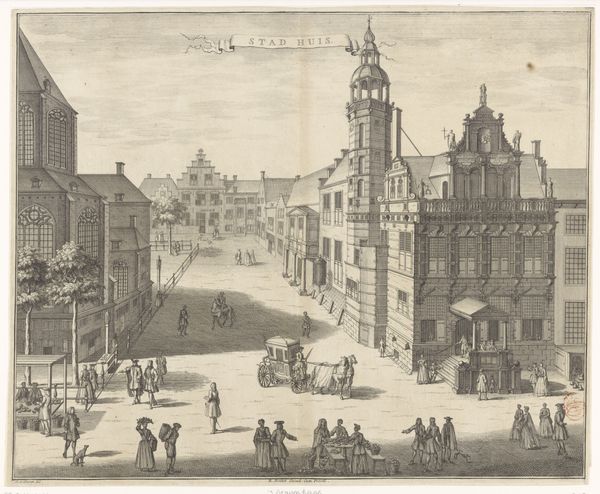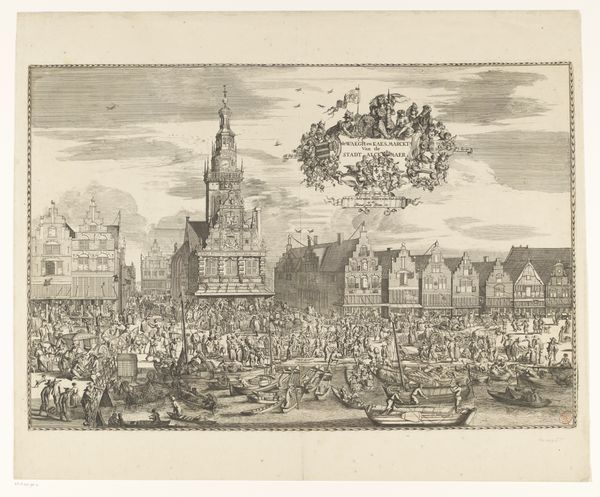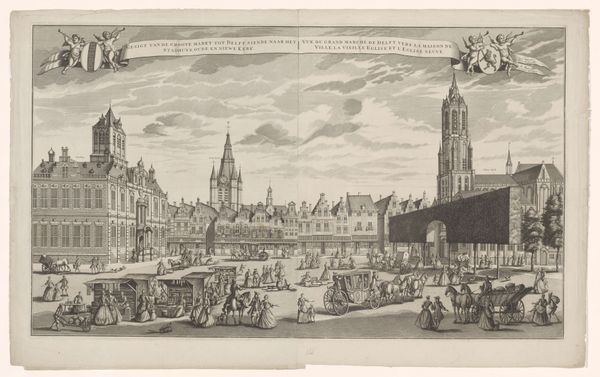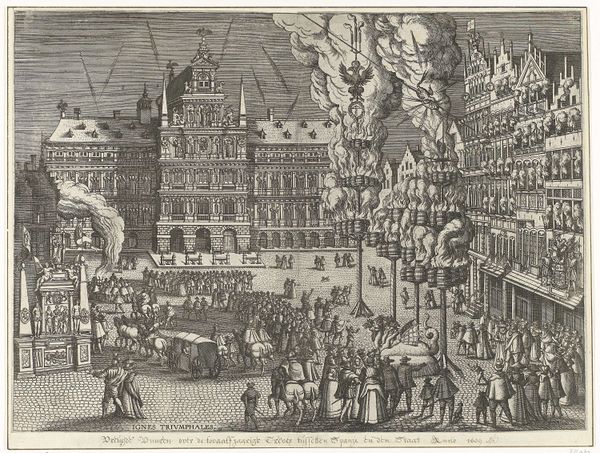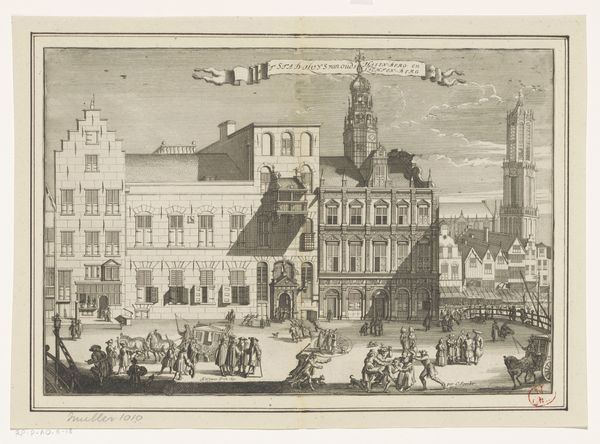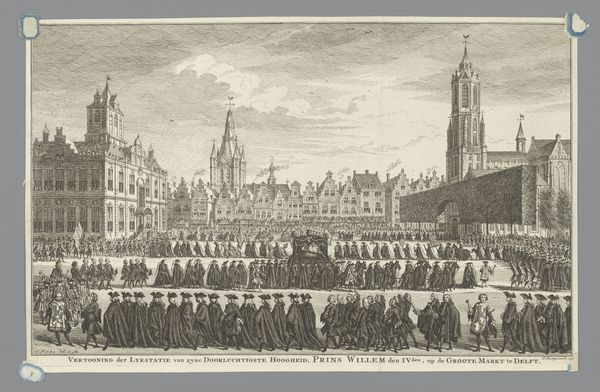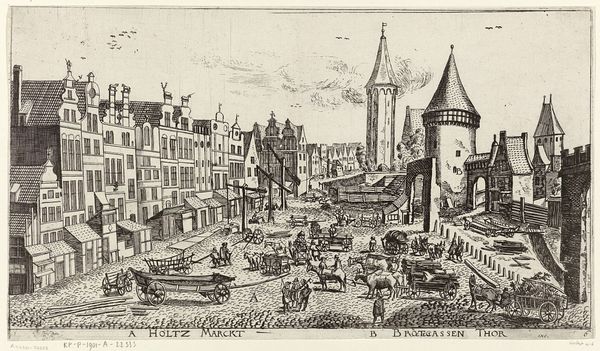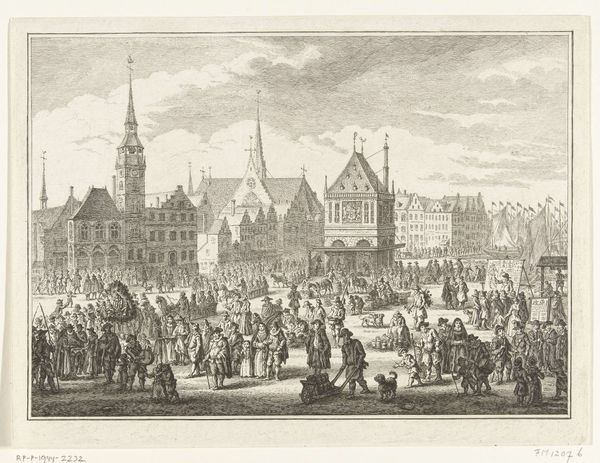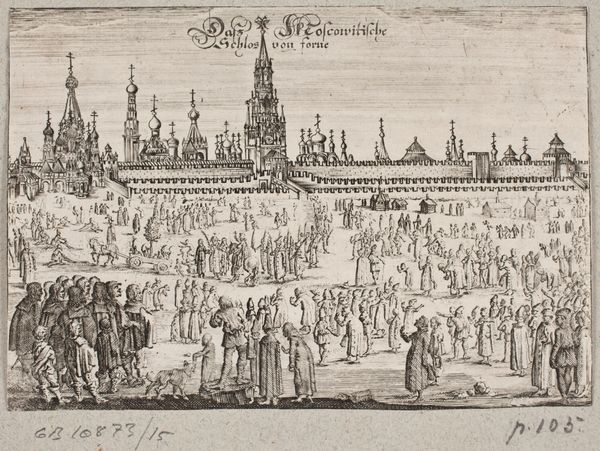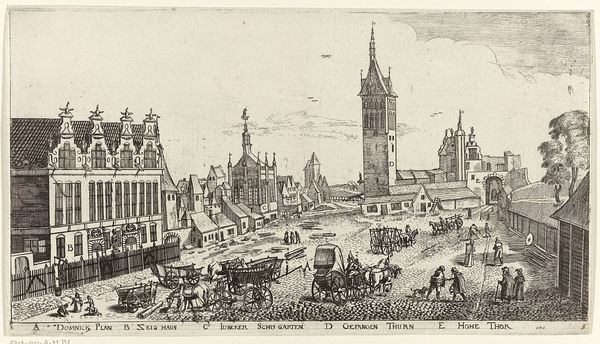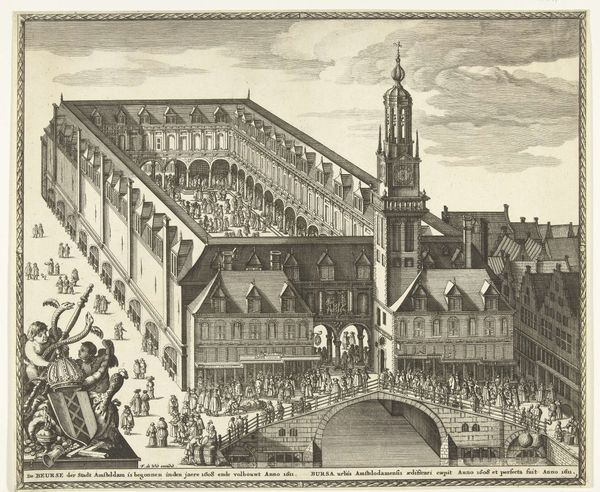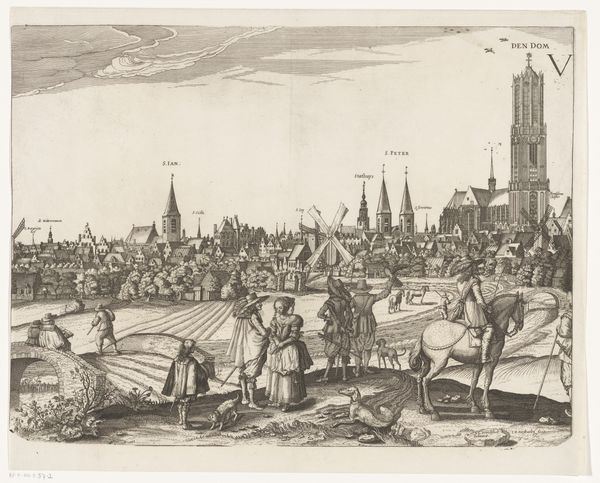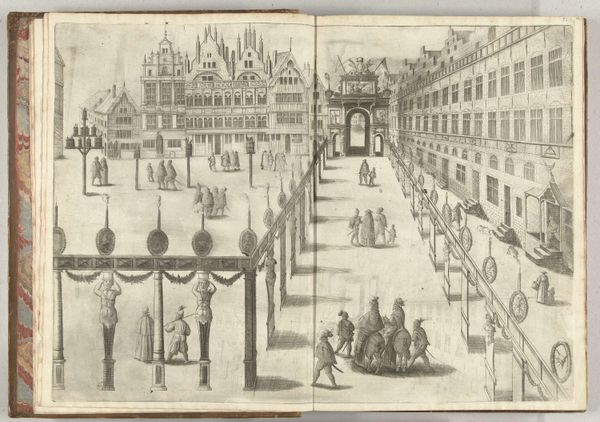
Plate 18: Procession of the Spanish Prince Ferdinand into the city of Ghent, January 28, 1635; from Guillielmus Becanus's 'Serenissimi Principis Ferdinandi, Hispaniarum Infantis...' 1636
0:00
0:00
drawing, print, etching, intaglio, engraving
#
drawing
#
baroque
# print
#
pen sketch
#
etching
#
intaglio
#
old engraving style
#
perspective
#
line
#
cityscape
#
history-painting
#
engraving
Dimensions: Sheet (Trimmed): 11 7/16 × 15 1/8 in. (29.1 × 38.4 cm)
Copyright: Public Domain
Johannes Meursius created this print, “Procession of the Spanish Prince Ferdinand into the city of Ghent,” around 1635. The print depicts Ferdinand’s grand entry into Ghent through triumphal arches. These temporary structures, adorned with allegorical figures and inscriptions, draw on the tradition of Roman imperial entries, celebrating the power and virtue of the ruler. We find similar arches erected throughout history, designed to evoke awe and underscore the authority of the leaders, echoing through time from ancient Rome to Renaissance pageantry. The procession itself, a carefully orchestrated display of power, resonates with similar displays across cultures. Consider how the act of parading before the masses engages deep-seated psychological needs for order and submission, tapping into collective memories of authority and social hierarchy. It is a non-linear journey, this passing down of symbols, each time changed and charged again with new, albeit related, meaning.
Comments
No comments
Be the first to comment and join the conversation on the ultimate creative platform.
